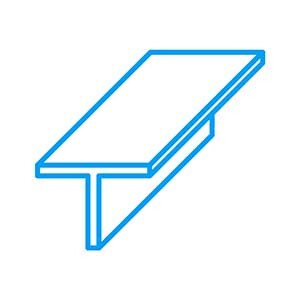Aluminum Grade
56 Product(s)



















Aluminium Materials – Versatile Solutions for Every Application
The Aluminium Materials category offers a comprehensive selection of aluminium alloys developed for a wide range of applications in industry, construction, and engineering. Whether pure aluminium or high-strength alloys – each material variant features specific properties tailored to its area of application. Choosing the right aluminium material plays a key role in ensuring the quality, efficiency, and durability of your projects.
Key Properties of Aluminium Materials
- Versatility:
Aluminium materials offer a wide range of properties – from excellent conductivity to exceptional strength and corrosion resistance. - Lightweight and Strong:
Aluminium combines low weight with high stability, making it ideal for lightweight construction. - Excellent Corrosion Resistance:
Many aluminium materials are resistant to weather, chemicals, and seawater, making them durable and low-maintenance. - Outstanding Workability:
Aluminium is easy to bend, weld, machine, and form – ideal for efficient integration into production processes.
Overview of Popular Aluminium Materials
EN AW-1050A
Commercially pure aluminium with at least 99.5% aluminium content – ideal for applications requiring high conductivity and corrosion resistance.
EN AW-2007
A high-strength aluminium alloy with excellent machinability, perfect for precision parts in mechanical and automotive engineering.
EN AW-3105
Lightweight and weather-resistant alloy frequently used in construction and packaging applications.
EN AW-5083
Extremely corrosion-resistant alloy, commonly used in shipbuilding and harsh environments.
EN AW-5754
Corrosion-resistant and versatile, widely used in transport and construction industries.
EN AW-6060
Easily formable alloy with excellent surface quality – ideal for architecture and decorative applications.
EN AW-6082
High-strength alloy with good weldability – ideal for load-bearing structures in construction and industry.
Application Areas of Aluminium Materials
- Construction:
Aluminium materials are used for facades, roofing systems, window frames, and load-bearing structures that must be durable and weather-resistant. - Transportation:
Aluminium is ideal for vehicle and aircraft components due to its excellent combination of lightness and strength. - Shipbuilding:
Materials like EN AW-5083 and EN AW-5754 are used in marine applications where corrosion resistance and structural integrity are essential. - Mechanical Engineering:
High-strength alloys such as EN AW-2007 and EN AW-6082 are suitable for precision parts and structural components. - Food and Packaging Industry:
Pure aluminium like EN AW-1050A is used in hygienic and chemically neutral applications.
Conclusion
The Aluminium Materials category offers a wide selection of high-quality materials tailored to the specific requirements of a variety of applications. From pure aluminium to high-strength and corrosion-resistant alloys, you will find the right material for your project here.
Contact us to learn more about our aluminium materials or to receive individual consultation and a customized quote.